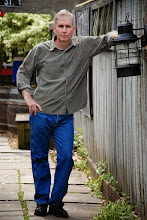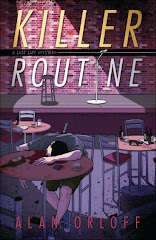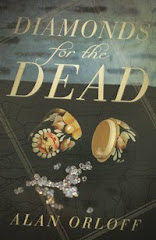
When I worked in the corporate world, sometimes I'd devote a staff meeting to brainstorming. We'd have certain "rules." No interrupting. No judging. No making fun of someone's ideas. I'd stand in front of a flipchart with a Magic Marker and scribble down everyone's thoughts. And boy, did we get some interesting ones! (No matter how many times it was suggested, we never did go to a one-day workweek.)
After we were done generating ideas, THEN we'd gather again to evaluate them. Essential, but not nearly as fun.
Now, I use brainstorming to come up with story ideas. Big picture, little picture, in-between picture. Character traits, settings, plot points, titles (especially titles). It doesn't matter what I'm working on, I find that generating a list of possibilities helps me be more creative, and it helps me narrow down my choices at the same time (weird how the mind works, huh?).
I guess, to some extent, we all brainstorm, whether we call it that or something else.
Now I'm off to brainstorm future blog topics. (Any suggestions?)





















8 comments:
I think it's interesting that your corporate experience has helped you in your creative experience. I wouldn't have thought it would have given you anything but fodder for victims for your books. :)
I'd like a post on how you got interested in pursuing the creative life. Because your dichotomy of interests and abilities is interesting...
Elizabeth
Why do people say "There's no such thing as a bad idea"? Because there is.
Brainstorming can be fun. Best of luck. Bring an umbrella.
Elspeth
Ideas. Hmmm. Well, sure. How about your road to publication, broken down into snippets. How and why you chose to become a fiction writer. What your writing goals are. What’s the best lesson you’ve learned about: Writing, publication, idea generation. Why you do or don’t outline, If you do or don’t use writing software, and why or why not. Gee, I could go one, but that’s more than you wanted, I’m pretty sure. HA!
Best Regards, Galen
Imagineering Fiction Blog
I'd like to hear more about how writers brainstorm by themselves -- the actual, physical process they use. I've seen how it works with a group of writers brainstorming together, where one person's idea feeds off another's, but I don't have anybody to do that with, and I'm not very good at doing it all by myself. So I come up with a premise for a book and then can't get any farther (further?) than that. (I.e., I SUCK at plotting.) So I'd really appreciate hearing how other writers do this.
Oh, great suggestion about a tiered system for agents. Gonna do that for sure. Thanks, Alan.
Best Regards, Galen
Imagineering Fiction Blog
Elizabeth - My corporate experience helped me understand that I didn't want to be in the corporate world.
Elspeth - Who says that? I have personally thought up millions of bad ideas. (I once made fish pie for my roommates in grad school. THAT was an extraordinarily bad idea!)
Galen - Thanks for some good ideas. I'll have to cogitate on them and, uh, brainstorm some answers.
Laura - I just spew out ideas, good or bad. (I guess you could pretend there was someone else in the room spewing ideas--attribute all the bad ones to him/her.) Then I winnow them down, massaging them, changing them, adapting them, until they fit my purposes. I guess it takes a little practice.
I've read some good books on writing that discuss plotting--unfortunately, I can't think of those titles right now! Maybe the Breakout Novel book by Maass.
Like you, brainstorming has always been the most enjoyable process I look forward to in making creative projects. What I find fascinating about it is how one person's idea can spur others to generate so many more ideas.
I'll give you a built-in one, takes up a lot of space: I left an award for you on my blog!
Michele
SouthernCityMysteries
Post a Comment